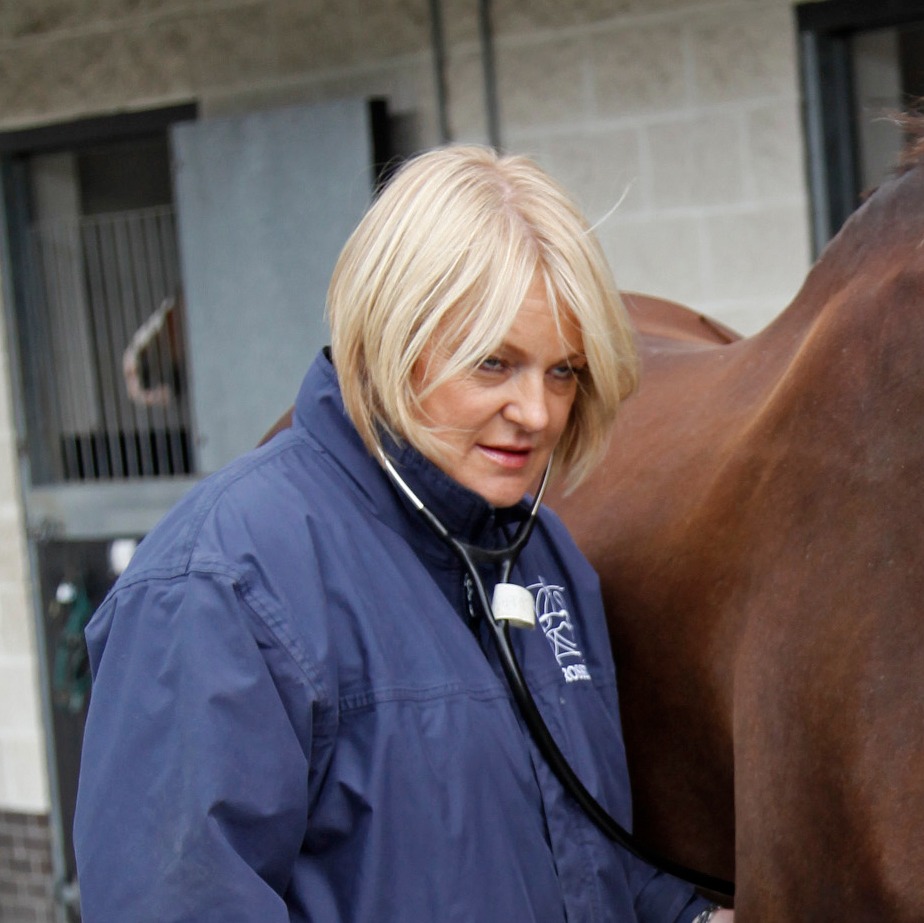Exercise-Induced Pulmonary Haemorrhage - Why do Horses develop it? What are the Best Diagnostic & Management Options?
Species
Equine
Contact Hours
3 Hours
Early Booking Deadline
Thu, 01 January, 1970
Registration Deadline
Thu, 01 January, 1970
Language
English
Discipline
Internal Medicine – Endocrinology, Haematology, Infectious Diseases, Parasitology & Oncology
Pathology - Clinical & Gross
Sports Medicine
Industry Partners
Global

Veterinary Partners
Global


Recorded on: 24th November 2020
Panelists:
Emmanuelle van Erck DVM, PhD, DECEIM – Equine Sports Medicine Practice, Belgium
Ken Hinchcliff BVSc, MS, PhD – University of Melbourne, Australia
Celia Marr BVMS, MVM, PhD, DEIM, DECEIM, FRCVS – Rossdales Equine Hospital, UK
Moderator:
Renaud Léguillette DMV, MSc, PhD, DACVIM – University of Calgary, Canada
CONTENT DESCRIPTION
Exercise-Induced Pulmonary Haemorrhage (EIPH) is a challenge for the whole equine industry and for individual veterinarians since it affects horses competing in many disciplines. The impact of EIPH on performance and health of horses has been debated for decades. Since the discovery in the 80’s that the bleeding originates from the lungs, much progress has been made in understanding EIPH and recent developments in diagnosing EIPH will be useful and practical for equine veterinarians. EIPH prevention is also controversial and can be done by using medication or through non-medication methods. What prevention strategies are currently most effective or might become available in the future? The world-renowned experts will be debating the following topics:
- What factors can trigger EIPH?
- What is the impact of EIPH on horses in different disciplines?
- Does EIPH affect horses’ respiratory health, performance and/or longevity?
- In practice, when should one chose Endoscopy vs. Bronchoalveolar Lavage to diagnose EIPH?
- What other diagnostic options exist?
- Is the use of Furosemide ethical and what other preventative strategies are available?
.
Celia M Marr graduated from the University of Glasgow in 1985 and her clinical career has focused on Cardiovascular Medicine, Internal Medicine, Intensive Care & Medical Imaging, and she has held positions in the University of Pennsylvania, University of Cambridge and the Royal Veterinary College and worked in racehorse practice in Lambourn. Currently, she is based at Rossdales Equine Hospital and Diagnostic Centre in Newmarket. Celia has published widely on medical disorders of the horse. She is a Diplomate of the European College of Equine Internal Medicine, Fellow of the Royal College of Veterinary Surgeons, Honorary Member of British Equine Veterinary Association, Honorary Professor of the University of Glasgow and Editor-in-Chief of Equine Veterinary Journal..
Emmanuelle van Erck graduated in 1996 from the French Veterinary School of Maisons-Alfort. She trained in sports medicine at the University of Liège (Belgium) where she obtained her PhD on respiratory function testing in horses. She developped the equine sports medicine unit and consulted as senior clinician in the CIRALE in Normandy (France). In January 2010, she started her own ambulatory referral practice, the ‘Equine Sports Medicine Practice’, based in Belgium. Her practice offers specialized service in equine internal and sports medicine throughout Europe, following national teams and international riders.
Emmanuelle van Erck authored over 50 peer-reviewed scientific articles and regularly lectures at international conferences. She is a member of the FEI expert committee on prohibited substances and doping.
Ken graduated from the University of Melbourne with a Bachelor of Veterinary Science, and later earned a Master of Science from the University of Wisconsin-Madison and a PhD from Ohio State University in 1990. He was an academic in the College of Veterinary Medicine at Ohio State University from 1990 to 2007, rising to professor.
At the University of Melbourne he led the formation of the joint Faculty of Veterinary and Agricultural Sciences, directing the review and renewal of the undergraduate teaching programs in that faculty, and was responsible for the introduction of the Doctor of Veterinary Medicine program, which the university began teaching in 2011.
He has extensive experience teaching undergraduate and graduate students, and is internationally recognised as a scholar of veterinary internal medicine and exercise physiology. Ken's extensive publications include co-authorship of the 9th, 10th and 11th editions of Veterinary Medicine, the most cited veterinary text book, and lead editor of the 1st and 2nd editions of Equine Sports Medicine and Surgery. He is the co-editor-in-chief of the Journal of Veterinary Internal Medicine, and a member of the Zoological Parks and Gardens Board of Victoria.
Ken is leading an extensive and exhaustive strategic planning process for Trinity College, including consideration of the roles of each of the Pathways School, Residential College and Theological School in achieving Trinity’s strategic purpose 'to be a vibrant, diverse community inspiring and enabling students of exceptional promise to imagine and achieve a better world'.
In 1994, Dr. Léguillette graduated from the ENVA (Ecole Nationale Vétérinaire d’Alfort) in Paris, France. After that, he completed an internship and a residency in equine internal medicine at the Faculty of Veterinary Medicine (FMV) of the Université de Montréal. From 1998 to 2001 Dr. Leguillette was hired as a clinician and lecturer in equine internal medicine. During that time, he obtained the status of diplomate of the American College of Veterinary Internal Medicine (ACVIM) in 2000 and in 2001 he earned his M.Sc. for a new treatment for horses affected with heaves.
In 2006, at the renowned Meakins-Christie Laboratories at McGill University, Dr. Léguillette completed a PhD on airway smooth muscle in human patients with asthma. Dr. Léguillette has been involved with the University of Calgary Faculty of Veterinary Medicine (UCVM) since its early days in 2006 - he is now an Associate Professor and Interim Department Head of the department of Veterinary Clinical and Diagnostic Sciences. At the UCVM he has developed a research program on inflammatory lung diseases, like heaves, and IAD (Inflammatory Airway Disease), as well as in equine sports medicine with a focus on cardio-respiratory physiology.
He has performed many clinical trials and field studies in Calgary, Alberta on the treatment of heaves and IAD, as well as on exercise physiology of show jumpers and chuckwagon horses. Dr. Léguillette is practicing as a UCVM equine internal medicine specialist at Moore Equine in Balzac, Alberta.
Veterinary Student
Online Panel Discussion
USD 35.00
Qualified Vet
Online Panel Discussion
USD 85.00
Intern/Resident (Requires proof of status)
Online Panel Discussion
USD 65.00
Vet Nurse/Vet Tech (Requires proof of status)
Online Panel Discussion
USD 65.00
If the options you are looking for are unavailable, please contact us.
No tax will be added unless you are a UK taxpayer
Choose currency at checkout


















